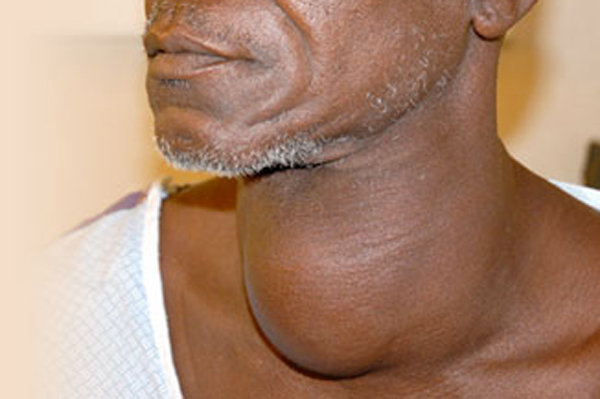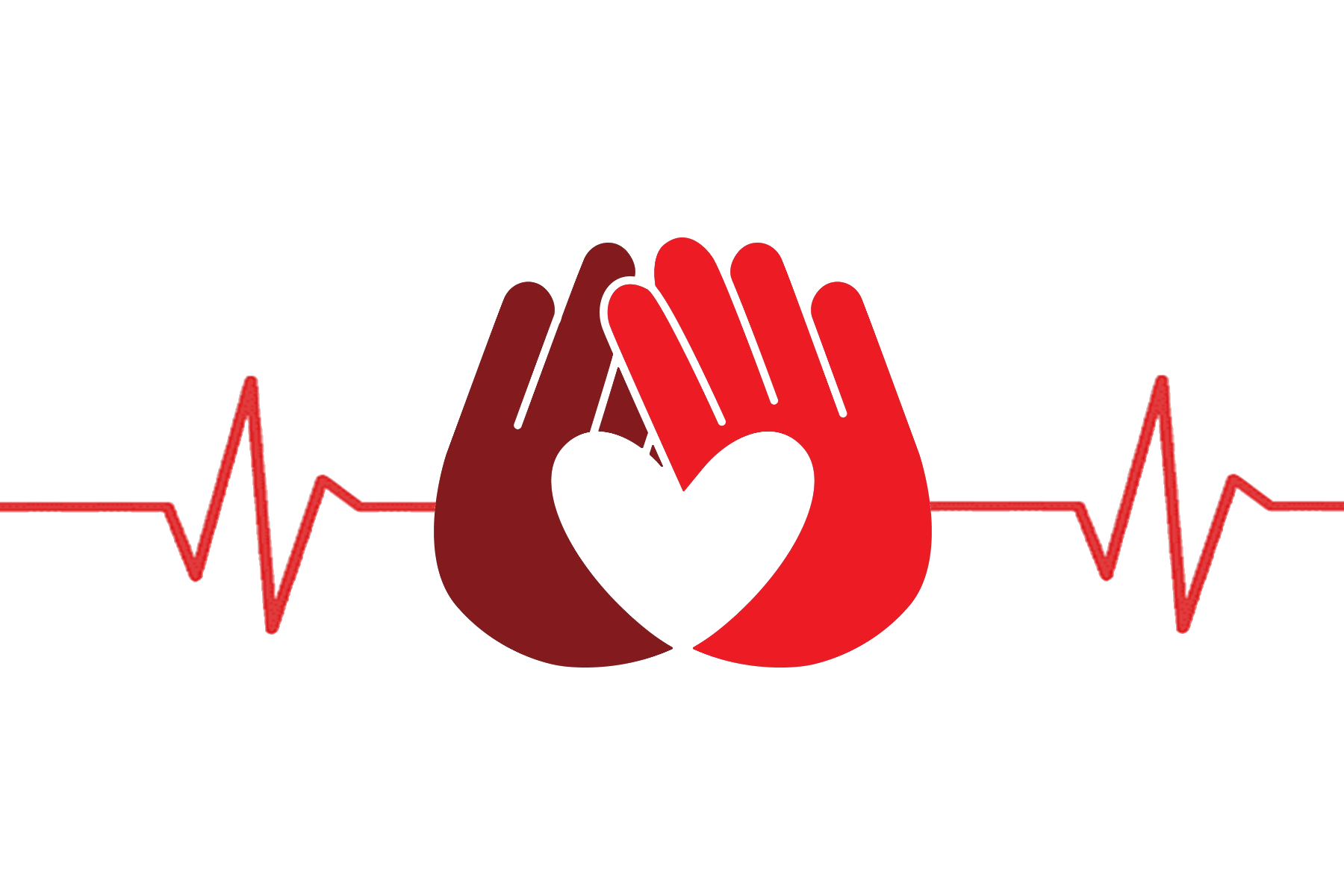Massage for Thyroid Problems

MASSAGE FOR CLIENTS WITH THYROID PROBLEMS
HYPOTHYROIDISM
Hypothyroidism affects approximately 0.1% of the population and causes increased fatigue and metabolic problems due to the body’s inability to produce energy. It happens as a result of:-
- thyroxine levels being abnormally low
- target cells becoming resistant to thyroxine
The thyroid gland wraps around the trachea, and secretes 2 hormones, thyroxine (T4) and triiodothyronine (T3), which control the metabolism. Thyroxine tends to be secreted in higher levels, but the thyronine is more potent. It is controlled by the pituitary gland which secretes thyroid-stimulating hormone (TSH). The higher the thyroxine level, the faster the metabolism, so when levels are low the metabolism slows down, causing fatigue, weight gain and hypersensitivity to the cold.
Obvious indicators of hypothyroidism include a goitre, slow heart rate and slow reflexes. If hypothyroidism occurs during pregnancy, this can result in mental retardation and poor growth, hence why thyroid levels are routinely checked.
RISK FACTORS
- hypothyroidism affects 5 x as many women, compared to men
- age – up to 10% of women over 65 are affected
SUGGESTED CAUSES
Research has shown that hypothyroidism may be related to:-
- general toxicity
- cellular resistance to thyroid hormones
- T4 supplementation rather than T3

SYMPTOMS
- Fatigue
- Depression
- Weight gain
- sluggish digestion and constipation
- hypersensitive to the cold
- puffy, dry skin
- brittle hair/hair loss
- heavy, long periods
- goitre (enlargement of the thyroid)
COMPLICATIONS AND ASSOCIATED CONDITIONS
- atherosclerosis – due to sluggish liver function meaning reduced chemicals that process cholesterol (hypothyroidism related high cholesterol doesn’t respond to medication)
- carpal tunnel syndrome – due to fluid retention in the arms and wrists
- chronic hoarseness – due to a goitre or fluid retention in the neck
- loss of consciousness (myxoedema coma) – due to cold and fatigue in severe cases
- fibromyalgia
- chronic fatigue syndrome
- depression
- candidiasis
Diagnosis may be difficult due to the number of symptoms that crossover into the above conditions.
TREATMENT
thyroid hormone supplementation
THE BENEFITS OF MASSAGE
Massage won’t help to balance out the thyroid hormone levels, but it can:-
- help improve quality of life
- help to ease fatigue by improving oxygenation
- help offset the reduced hormone production by increasing blood and lymphatic circulation
- improve digestive function – by stimulating peristalsis, thus reducing bloating and constipation
- ease anxiety and depression – by lowering stress hormones and increasing endorphin release
For clients where atherosclerosis is also a problem, massage may still be possible but only by a therapist who is experienced in dealing with the condition.
HYPERTHYROIDISM

In hyperthyroidism, the thyroid gland produces too much of each thyroid hormone (T3 and T4), meaning that the person has an excessive amount of energy and very fast metabolism, causing weight loss, heart palpitations, sparse menstrual periods, and protruding eyes.
RISK FACTORS
- Women are approximately 4 times more likely to have an overactive thyroid than men, with approximately 1 in 50 women being diagnosed in the UK
- People are generally diagnosed between 20 and 40 years old
- If a pregnant woman has an underactive thyroid, then an overcompensatory response in the baby may result in them having an overactive thyroid..
CAUSES
- a thyroid infection
- toxic nodular goitre - nodules that become hyperactive for unknown reasons
- Grave’s disease - autoimmune attack against the thyroid gland causing excess secretion of thyroid hormones (70-80% of all hyperthyroid cases) and resulting in a goitre
The pituitary gland secretes thyroid stimulating hormone (TSH) which controls the thyroid gland and the metabolic rate, but in Grave's disease, the thyroid produces TSH and the levels drop, while levels of TSI (Thyroid Stimulating Immunoglobulins) increase. These antibodies attack the thyroid, causing a 60-100% increase in the metabolic rate.
RISK FACTORS FOR GRAVES DISEASE
- High stress levels eg. bereavement
- Genetics
- exposure of the thyroid to X-rays
- previous use of antiviral medications eg. interferon or interleukin
SYMPTOMS
- goitre – enlargement of the thyroid
- anxiety and irritability
- insomnia
- heart palpitations
- thyroid storms – dangerous episodes of accelerated metabolism (rapid heartbeat, fever without infection, intolerance to heat, confusion, agitation, fainting or shock)
- tremor
- increased perspiration
- sensitivity to heat
- unintentional weight loss
- skeletal muscles weaken
- lighter menstrual flow
- dry skin and brittle nails
- pretibial myxoedema – raised red patches on the shins and feet
- exophthalmos – protrusion of the eyeslight sensitivity
- double vision
TREATMENT
Treatment for an overactive thyroid really depends on is causing the problem, but may include:-
- Radioactive iodine – can be used for diagnosis and to slowly deactivate part of the thyroid gland, meaning that the thyroxine levels will gradually be reduced, easing symptoms. This does, however, carry the risk of having an underactive thyroid after some time, but this is a more manageable condition.
- Antithyroid medications – prevents excessive thyroxine secretion
- Surgery – thyroidectomy may be a suitable option for people who are unable to take the medication and radioactive iodine. This will remove most of the thyroid gland but may cause damage to the vocal cords, laryngeal nerves and parathyroid glands which control calcium metabolism. It also increases the risk of hypothyroidism is high.
- Nutrition - some foods (eg. bok choi, broccoli, brussels sprouts, cauliflower, and fruits like peaches, pears, plums, raspberries, and strawberries) and/or vitamins inhibit thyroid activity, but will not make any difference if the immune system is involved.
HOW CAN MASSAGE HELP?
Massage suppresses the sympathetic nerve system dominance, promoting relaxation and positive sleeping patterns, meaning that hyperthyroid symptoms which have sympathetic-like characteristics, maybe eased. Massage is known for its effects on the immune system and improved lymphatic flow which may assist if there has been any infection. It can also help with dry skin and maintaining muscle tone during weight loss .
